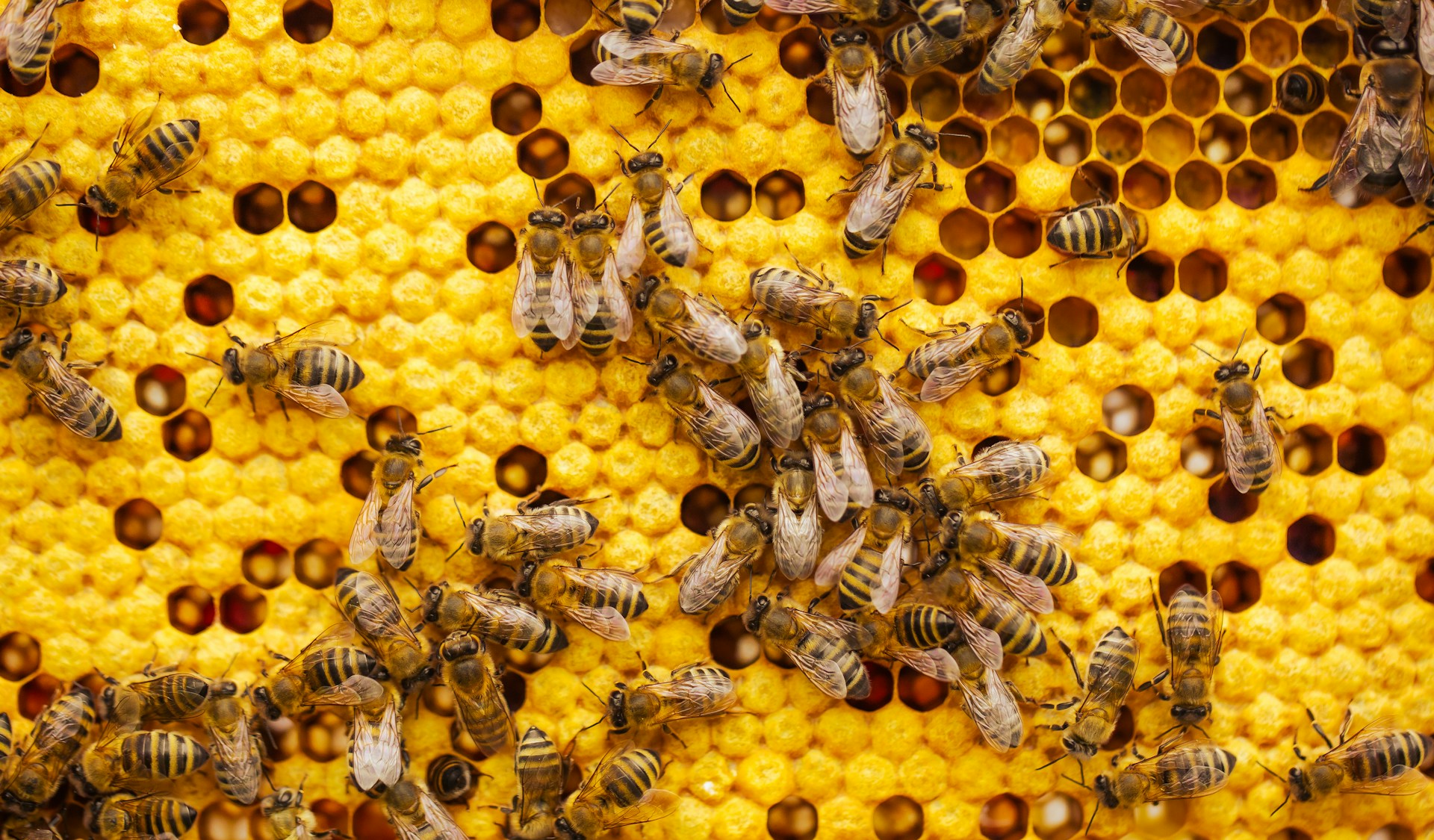The Buzz about Pollination: Honeybees and Their Vital Role in Ecosystems
When we think of honeybees, we often associate them with their delicious honey. But honeybees are much more than just honey producers; they are nature's superheroes playing a vital role in the health of ecosystems and food production through their incredible talent for pollination.
HONEYBEES
5/30/20232 min read
When we think of honeybees, we often associate them with their delicious honey. But honeybees are much more than just honey producers; they are nature's superheroes playing a vital role in the health of ecosystems and food production through their incredible talent for pollination.
At the heart of pollination lies the intricate dance between flowers and bees. As honeybees collect nectar from flowers, they inadvertently transfer pollen from the male parts of one flower to the female parts of another. This simple act of gathering food is a crucial step in the reproduction of flowering plants.
The magic of pollination doesn't stop there. It's estimated that honeybees contribute to the pollination of one-third of the food crops we rely on for sustenance. Fruits, vegetables, nuts, and seeds owe their abundance and diversity to the tireless work of honeybees. In fact, without their pollination services, many of our favourite foods would be scarce or even disappear from our plates.
The impact of honeybees on ecosystems goes beyond food production. Their pollination efforts support the growth of wildflowers, contributing to the vibrant tapestry of colours and biodiversity in natural habitats. By ensuring the reproduction of various plant species, honeybees play a critical role in maintaining the delicate balance of ecosystems.
Unfortunately, honeybee populations face numerous challenges that threaten their survival. Habitat loss, pesticide use, climate change, and the spread of diseases pose significant risks to bee colonies worldwide. As stewards of the Earth, it's our responsibility to protect these industrious insects and their important role in our ecosystems.
One way to support honeybees is by creating bee-friendly gardens. Plant a diverse array of flowers that bloom throughout the seasons, providing honeybees with a consistent source of nectar and pollen. Native flowering plants are particularly beneficial as they have evolved alongside bees, offering a perfect match for their nutritional needs.
To safeguard honeybees and the environment, opt for natural pest control methods and avoid using harmful pesticides that can harm bees and other beneficial insects. Embrace sustainable gardening practices that nurture both your plants and the pollinators that rely on them.
Raising awareness about the importance of honeybees is another powerful tool for change. Educate yourself and others about the critical role honeybees play in our food systems and ecosystems. Support local beekeepers who prioritize the well-being of their bees and practice sustainable beekeeping methods.
By working together, we can ensure a brighter future for honeybees and our planet. Let's celebrate these industrious pollinators, protect their habitats, and create a world where they can thrive. Remember, the buzz of a bee is the heartbeat of nature itself.







